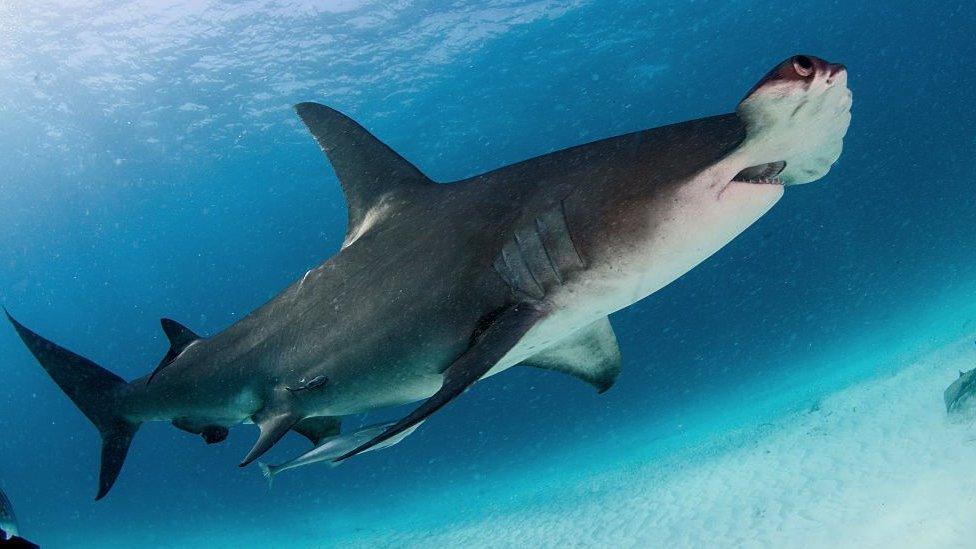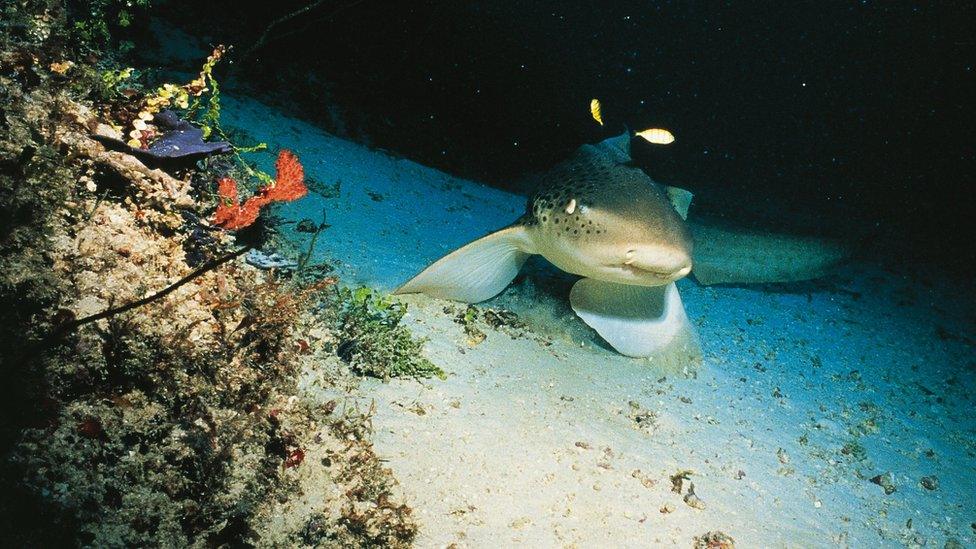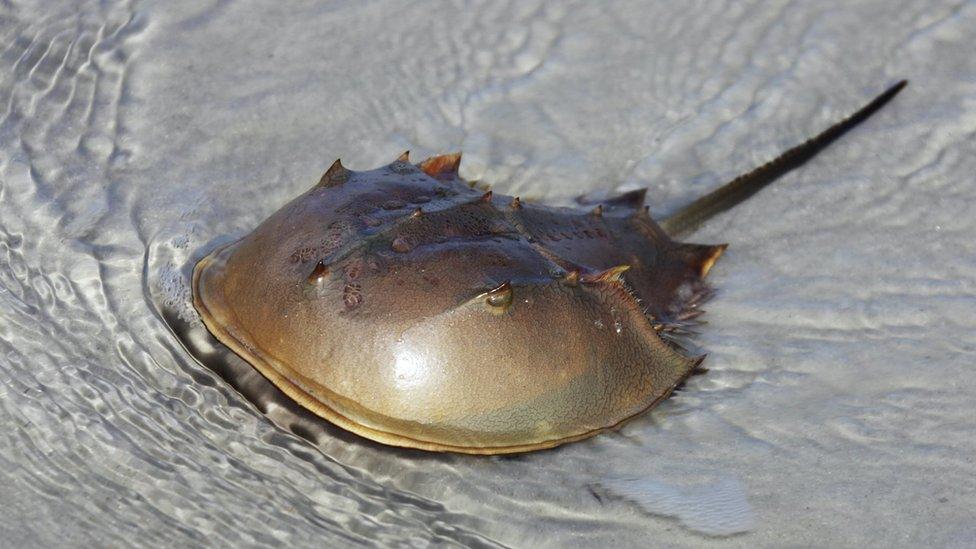Sharks 'functionally extinct' in 20% of world's reefs
- Published

They are known as fearsome ocean predators.
But the number of sharks around the world has fallen, according to a major new study.
Research published in the science journal Nature, found fishing was responsible for fewer sharks across many of the world's coral reefs.
Using a network of underwater cameras, researchers found sharks were "functionally extinct" at 20% of the reefs they surveyed.
They blame "destructive and unsustainable" fishing techniques for the problems they uncovered across 58 different countries.
"Reef sharks were almost completely absent from reefs in several nations," the study says.

Sharks at 371 reefs were studied over four years.
Sharks play a key role in keeping the ocean's ecosystem healthy - which many of us rely on for food.
And if you've gone on any diving holidays - you'll know that a healthy shark population can be crucial for countries whose economy may rely on tourism.
But globally, about 100 million sharks are estimated to be killed each year for their fins and meat.

Over 15,000 hours of footage captured 59 different shark species.
According to the study, reefs that are close to human populations in countries that have poor governance are the worst affected.
"The worst-ranked nations for reef sharks included Qatar, the Dominican Republic, continental Colombia, Sri Lanka and Guam."
34 out of 58 nations had shark numbers that were half what was expected by the scientists, which they say suggests a loss of reef sharks is quite common among reefs globally.
But there are some success stories too.
Shark population was relatively high on the world's largest coral reef system - the Great Barrier Reef - off the coast of Australia.

Losing sharks is impacting the health of coral reefs.
Places like the Bahamas and continental Australia had features which the scientists associated with "increased abundances of reef sharks".
These places were seen to be "well-governed and having strong management" of shark fisheries or sanctuaries - areas that forbid commercial fishing.
How can we fix the problem?
The good news for the shark population - is that this can be reversed according to the experts.
To achieve "meaningful conservation gains", it's important to implement policies in ways which are likely to be accepted in different societies.
The study identifies two ways which can help conservation efforts for sharks.
Things like fisheries management - which is producing sustainable benefits from renewable ocean resources - can help the conservation efforts of reef sharks.
And around the world, they suggest policies such as national bans on the targeting and trade of sharks.
A great white shark off the coast of South Africa


Follow Newsbeat on Instagram, external, Facebook, external, Twitter, external and YouTube, external.
Listen to Newsbeat live at 12:45 and 17:45 weekdays - or listen back here.
- Published10 July 2020

- Published8 July 2020
